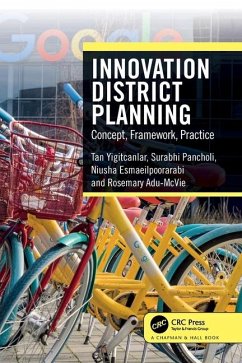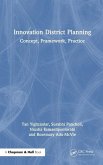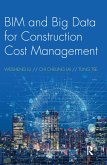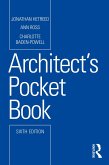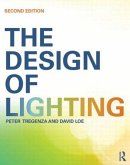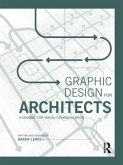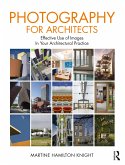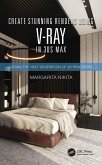This book aims to fill the knowledge gap on how to plan, develop and manage innovation districts that are competitive in terms of both productivity and quality of living, justifying the massive investment put into place and at the same time doing both in a delicate and harmonious way.
There is a need for smart urban land use that is wired with both hard infrastructures (e.g., telecommunication and transport) and soft infrastructures (e.g., diversity and tolerance). The reader learns this knowledge through conceptual expansions for key insights, frameworks for potential and performance assessment and best practices for global innovation districts. The authors begin innovation district planning with the role and effectiveness of planning a branding in the development of innovation districts. The next key topic of place making is recognised as a key strategy for supporting knowledge generation and innovation activities in the contemporary innovation districts. Another important topic is place quality where the reader learns to identify and classify indicators of place quality by studying global innovation districts best practices. The reader also expands their understanding on the classification of innovation districts based on their key characteristics through a methodological approach. The book concludes with district smartness studied through the socio-cultural role played by anchor universities in facilitating place making in innovation districts. Smart campuses, enabled by digital transformation opportunities in higher education, are seen as a miniature replica of smart cities and serve as living labs for smart technology.
The book serves as a repository for scholars, researchers, postgraduate and undergraduate students as it communicates the complex innovation district phenomenon in an easy-to-digest form by providing both the big picture view and specifics of each component of that view.
There is a need for smart urban land use that is wired with both hard infrastructures (e.g., telecommunication and transport) and soft infrastructures (e.g., diversity and tolerance). The reader learns this knowledge through conceptual expansions for key insights, frameworks for potential and performance assessment and best practices for global innovation districts. The authors begin innovation district planning with the role and effectiveness of planning a branding in the development of innovation districts. The next key topic of place making is recognised as a key strategy for supporting knowledge generation and innovation activities in the contemporary innovation districts. Another important topic is place quality where the reader learns to identify and classify indicators of place quality by studying global innovation districts best practices. The reader also expands their understanding on the classification of innovation districts based on their key characteristics through a methodological approach. The book concludes with district smartness studied through the socio-cultural role played by anchor universities in facilitating place making in innovation districts. Smart campuses, enabled by digital transformation opportunities in higher education, are seen as a miniature replica of smart cities and serve as living labs for smart technology.
The book serves as a repository for scholars, researchers, postgraduate and undergraduate students as it communicates the complex innovation district phenomenon in an easy-to-digest form by providing both the big picture view and specifics of each component of that view.
"This book on innovation district planning is a must needed 'how to' companion for the expanding drive to construct hard and soft urban infrastructures that attract, maintain, and support the rise of creative smart people and firms, and building tomorrow's economy."
-Edward J. Blakely, University of California Berkeley, USA
"This timely book provides insights into different aspects of innovation districts, particularly the critical importance of collaborative relationships in the design and operation of innovation districts. The book focuses on the critical role that innovation districts can play in helping urban city-regions become dynamic innovation ecosystems."
-David Wolfe, University of Toronto, Canada
"This book focuses on development of innovation districts from its origin as science and technology parks to its present form that integrates business climate with people climate, important for attracting and retaining talents and investments. It deals with this development in a convincing way and is a must read for academics, planners, and practitioners."
-Bjørn T. Asheim, University of Stavanger, Norway
"Innovation-so much desired by urban policymakers and built environment practitioners, but so very hard to foster in many cities. This book fills a large gap that has existed in the literature on how exactly to go about designing innovation into cities. It brings interdisciplinary insights and a wealth of case studies to bear on the challenge of placemaking for urban economic innovation."
-Nicholas Phelps, University of Melbourne, Australia
"The rise of innovation districts and the knowledge economy are reshaping the future of our cities, and this groundbreaking work provides critical insights about the geography of innovation and the development of place."
-Matt Collins, CEO, Planning Institute of Australia
"Innovation districts can be a powerful tool for cities to achieve knowledge-based development. To succeed, we need to understand thoroughly the various types of innovation districts and how they fit different contexts. This book provides the reader with valuable conceptual and practical tools to support planning successful innovation districts."
-Antti Lonnqvist, Tampere University, Finland
"This book injects innovation district planning into placemaking to explore and advance new understanding and approaches. It integrates strong theoretical debates and empirical analysis into forging novel frameworks for best practices. It stands out for its usefulness and useability for scholars, students, and practitioners in pursuit of new urban planning."
-Richard Hu, University of Canberra, Australia
-Edward J. Blakely, University of California Berkeley, USA
"This timely book provides insights into different aspects of innovation districts, particularly the critical importance of collaborative relationships in the design and operation of innovation districts. The book focuses on the critical role that innovation districts can play in helping urban city-regions become dynamic innovation ecosystems."
-David Wolfe, University of Toronto, Canada
"This book focuses on development of innovation districts from its origin as science and technology parks to its present form that integrates business climate with people climate, important for attracting and retaining talents and investments. It deals with this development in a convincing way and is a must read for academics, planners, and practitioners."
-Bjørn T. Asheim, University of Stavanger, Norway
"Innovation-so much desired by urban policymakers and built environment practitioners, but so very hard to foster in many cities. This book fills a large gap that has existed in the literature on how exactly to go about designing innovation into cities. It brings interdisciplinary insights and a wealth of case studies to bear on the challenge of placemaking for urban economic innovation."
-Nicholas Phelps, University of Melbourne, Australia
"The rise of innovation districts and the knowledge economy are reshaping the future of our cities, and this groundbreaking work provides critical insights about the geography of innovation and the development of place."
-Matt Collins, CEO, Planning Institute of Australia
"Innovation districts can be a powerful tool for cities to achieve knowledge-based development. To succeed, we need to understand thoroughly the various types of innovation districts and how they fit different contexts. This book provides the reader with valuable conceptual and practical tools to support planning successful innovation districts."
-Antti Lonnqvist, Tampere University, Finland
"This book injects innovation district planning into placemaking to explore and advance new understanding and approaches. It integrates strong theoretical debates and empirical analysis into forging novel frameworks for best practices. It stands out for its usefulness and useability for scholars, students, and practitioners in pursuit of new urban planning."
-Richard Hu, University of Canberra, Australia

